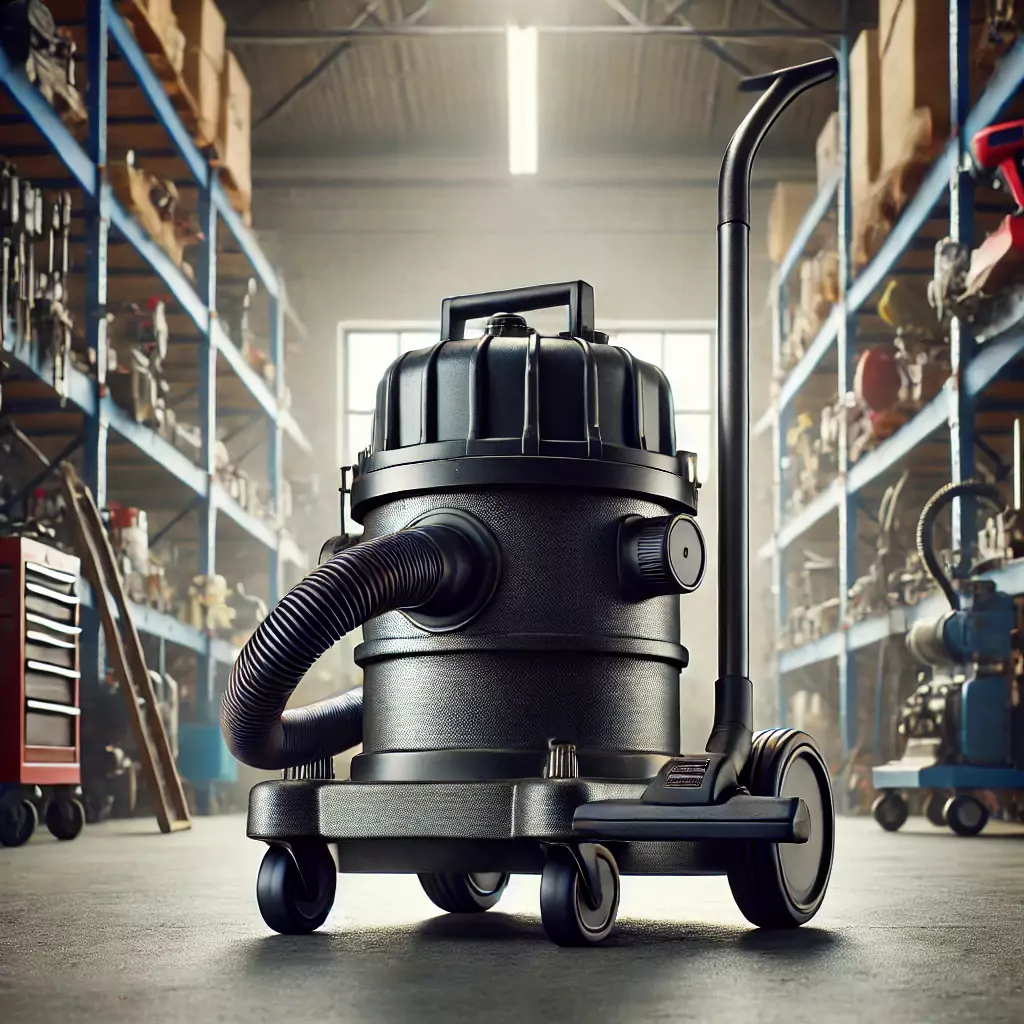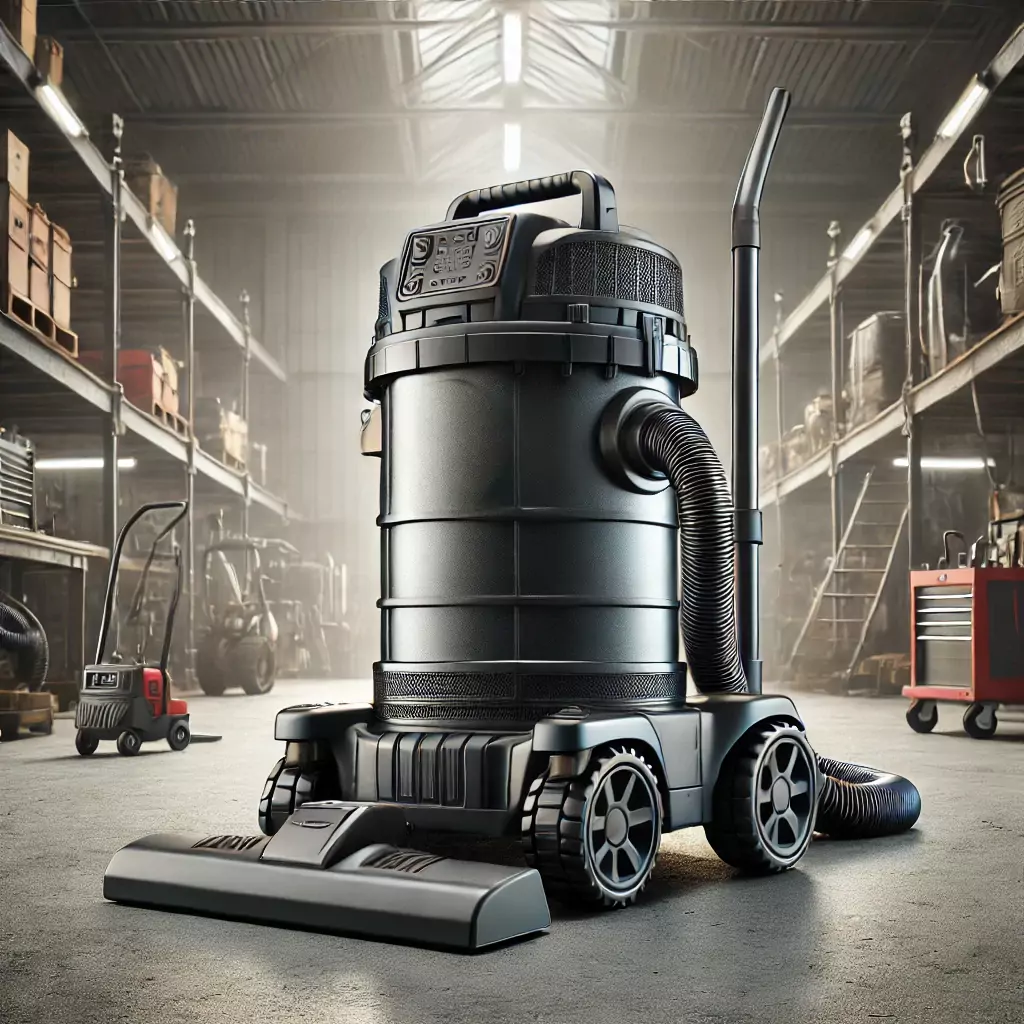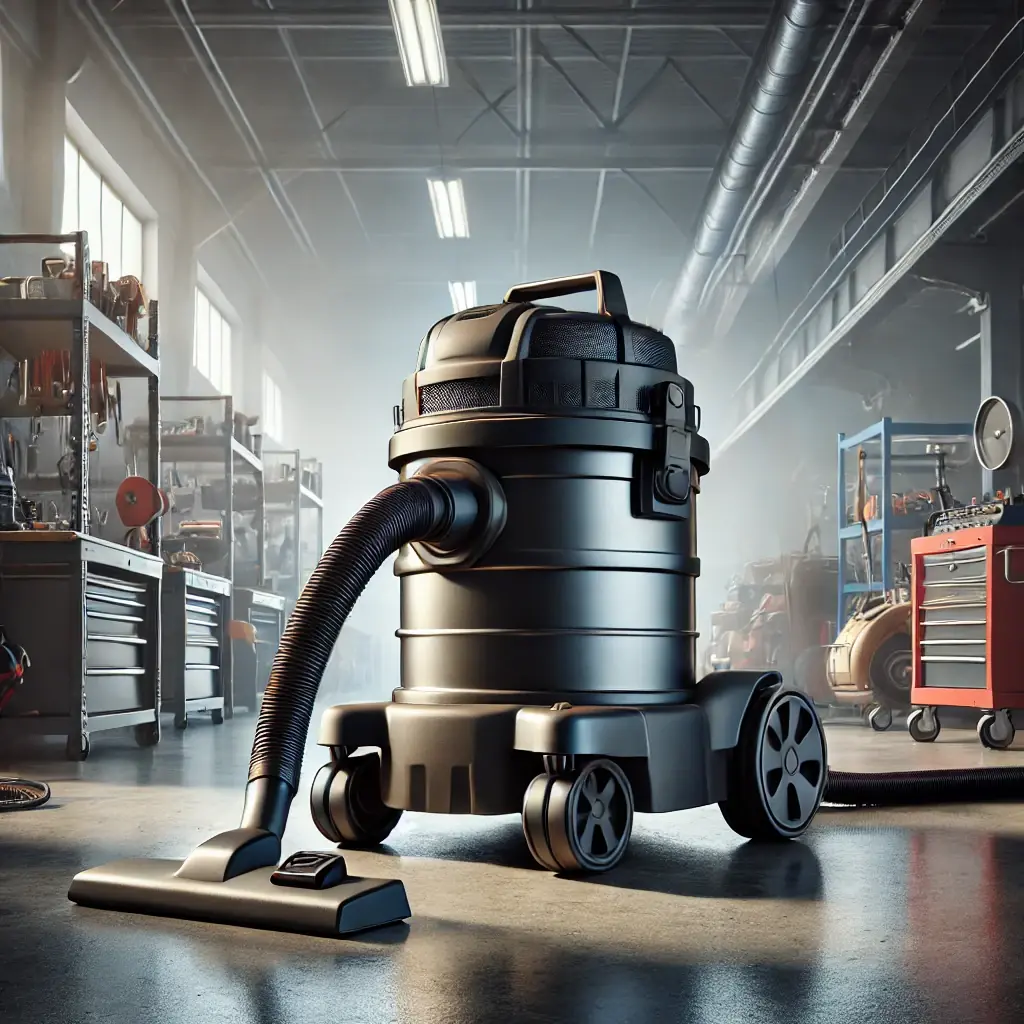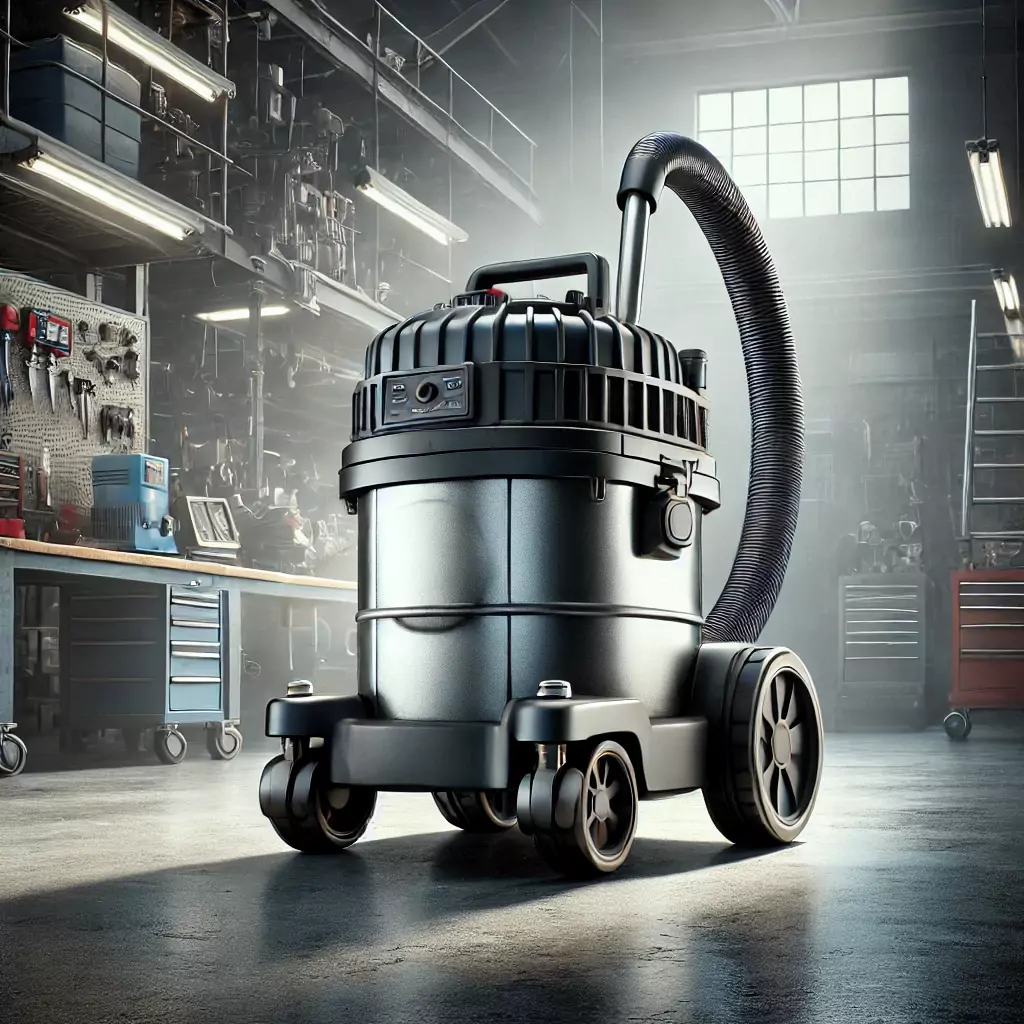Industrial Vacuums
Power and Efficiency for Large Spaces
Advantages of Industrial Vacuums for Cleaning Large Areas
Industrial vacuums are powerful and robust tools designed to tackle the challenges of cleaning environments that require greater capacity and power than household models. Whether in factories, warehouses, workshops, or commercial buildings, industrial vacuums provide an efficient solution for keeping large spaces clean and free of dust, debris, and other waste. Below, we explore the main advantages of using industrial vacuums for cleaning large spaces and how they can make these tasks faster and easier.
One of the primary advantages of industrial vacuums is their high suction power. Unlike conventional vacuums designed for home use, industrial vacuums are equipped with more powerful motors that allow them to pick up large amounts of dust, heavy debris, and even liquids in a single pass. This is particularly useful in industrial or commercial settings where dirt and waste can quickly accumulate, such as in mechanic shops, warehouses, or factories. The high suction power ensures deep cleaning, even in areas with high activity or heavy traffic.

Another key benefit of industrial vacuums is their durability and resilience. They are designed to withstand demanding work conditions, meaning they are built with more robust materials and higher-quality components compared to household models. This allows them to handle heavier debris such as coarse dust, construction waste, metal shavings, or rubble without sustaining damage. Additionally, many industrial vacuums are equipped with specialized filters, like HEPA filters, which capture fine particles and contaminants—a crucial feature in industrial settings where large amounts of dust are generated.
The dustbin capacity is another significant advantage of industrial vacuums. Industrial models typically have much larger dustbins than conventional vacuums, enabling them to collect substantial amounts of debris without frequent emptying. This is ideal for cleaning large areas or conducting prolonged cleaning tasks, minimizing interruptions and maximizing efficiency. In commercial or industrial environments, where time is a valuable resource, the ability to clean continuously is essential for maintaining productivity.
Industrial vacuums are also known for their versatility. They are designed to adapt to a wide range of environments and applications. They can clean both dry and wet surfaces, making them an ideal choice for areas where liquids or dust are generated. Some industrial vacuums are even designed to handle hazardous materials, such as chemicals or toxic waste, making them indispensable in certain industries. This versatility means that a single machine can manage multiple types of debris and cleaning requirements, reducing the need to purchase separate equipment for different tasks.
Another advantage of industrial vacuums is their efficiency in large areas. With their power, capacity, and robust design, these machines can cover extensive surfaces in less time than a conventional vacuum. This is particularly useful in warehouses, factories, or commercial spaces where cleaning large areas quickly and effectively is necessary. By reducing cleaning time, businesses can maintain their facilities in better condition, improve safety, and optimize operations.
How to Choose the Best Industrial Vacuum for Your Business?
Industrial vacuums are essential tools in commercial and industrial settings where frequent and thorough cleaning of large surfaces is required. However, choosing the best industrial vacuum for your business can be challenging due to the wide range of models and features available. To make the right choice, it’s important to consider your business’s specific needs and the key features of industrial vacuums. Below are some critical factors to consider when selecting the best industrial vacuum for your company.
One of the first aspects to evaluate is the suction power of the industrial vacuum. Depending on the type of debris you need to clean, suction power will be a decisive factor. Industrial vacuums are designed to collect a wide variety of materials, from fine dust to heavy debris, so it’s crucial to ensure that the model you choose has enough power to handle the waste in your environment. If your business generates a significant amount of heavy debris or hard-to-vacuum materials, such as metal shavings or construction waste, an industrial vacuum with high suction power will be the best choice.
Another crucial aspect is the dustbin capacity. Industrial vacuums typically have larger dustbins than conventional vacuums, allowing them to collect substantial amounts of debris without frequent emptying. The dustbin capacity should align with the size of the area you need to clean and the volume of waste generated daily. If your business requires frequent cleaning and deals with large amounts of debris, a model with a large-capacity dustbin will be essential to minimize interruptions during cleaning.
It’s also vital to consider the type of debris the industrial vacuum needs to handle. Some industrial vacuums are designed for dry waste, while others are suitable for wet or liquid materials. If your business generates both solid and liquid waste, it’s advisable to choose a wet and dry industrial vacuum, which allows you to clean both types of debris efficiently. This feature is especially important in industries such as construction, automotive, or large-scale facility maintenance, where various types of waste are common.

The filtration system is another critical factor when choosing an industrial vacuum. In industrial settings where fine dust and contaminants can pose a problem, it’s essential to have a vacuum equipped with high-efficiency filters, such as HEPA filters. These filters can capture small particles and allergens, improving workplace air quality and protecting employees from potential health risks. Ensure that the industrial vacuum you select has a filtration system suitable for the conditions of your business.
Another important consideration is the durability and robustness of the vacuum. Industrial vacuums are designed to withstand demanding work conditions, so it’s crucial that the model you choose is sturdy enough to last over time. The construction materials, motor quality, and accessories should be of high quality to endure daily wear and tear. Choosing a vacuum made with durable materials not only ensures long-term performance but also reduces maintenance and replacement costs.
Finally, consider the mobility and maneuverability of the industrial vacuum. In large spaces such as warehouses or factories, ease of transport and maneuverability are essential for ensuring you can cover the entire area efficiently. Look for models with durable wheels and an ergonomic design that allows the vacuum to move easily across various floor types.
Applications of Industrial Vacuums in Various Settings
Industrial vacuums are essential tools for maintaining cleanliness in a wide range of environments where cleaning demands exceed the capacity of conventional vacuums. With their power, durability, and versatility, industrial vacuums can handle large amounts of debris, liquids, and dust in sectors where fast and efficient cleaning is crucial. Below, we explore some of the most common applications of industrial vacuums in different settings and how these machines can address various cleaning challenges.
One of the primary environments where industrial vacuums are indispensable is factories and production plants. These spaces generate significant amounts of waste, such as metal dust, wood shavings, or construction material remnants. Industrial vacuums are specifically designed to handle heavy and large debris, making them the ideal tool for quick cleaning without disrupting production. Additionally, many factories require vacuums capable of collecting both dry and wet waste, particularly in areas prone to liquid spills. Having a vacuum that can handle both types of debris enhances safety and efficiency within the facility.

Another key environment where industrial vacuums play a crucial role is mechanic and automotive workshops. These spaces produce a combination of waste, including dust, grease, oils, and small metal parts. Industrial vacuums not only have the power to effectively clean these materials but are also equipped with advanced filters capable of capturing fine and toxic particles, improving air quality in the workspace. Additionally, the ability to handle liquid waste is particularly useful in automotive workshops, where spills of oil and other liquids are common.
In warehouses and logistics centers, industrial vacuums also serve an essential purpose. Warehouses are large spaces where dust and debris can quickly accumulate due to the constant movement of goods and vehicles. Industrial vacuums allow for efficient cleaning of extensive areas, removing accumulated dust and enhancing workplace safety. Their powerful suction capabilities make them ideal for collecting large amounts of debris left behind after daily operations, keeping the warehouse in optimal condition.
Industrial vacuums are also widely used in the construction sector. Construction sites generate large quantities of dust, rubble, cement, and other heavy materials. Conventional vacuums are unable to handle these types of debris effectively, while industrial vacuums are designed to collect both fine dust and larger construction materials. This is critical for keeping construction sites clean and safe, as the accumulation of dust and debris can pose hazards to workers and delay project progress. Industrial vacuums with HEPA filters are particularly valuable for ensuring healthy air quality, especially during demolition or building rehabilitation projects where dust and other contaminants are prevalent.
In the hospitality sector, such as hotels and large commercial facilities, industrial vacuums are used for deep cleaning carpets, upholstery, and expansive floor areas. These environments require vacuums capable of operating for extended periods without losing power, making them ideal for maintaining cleanliness and optimal conditions for guests. Additionally, some industrial vacuums are specifically designed to handle large areas of carpeting and hard floors, providing efficient, high-quality cleaning.
Essential Maintenance and Care for Industrial Vacuums
Industrial vacuums are essential tools for maintaining cleanliness in demanding work environments. Given their power and ability to handle large volumes of debris, proper maintenance is critical to ensuring long-term optimal performance. Taking good care of industrial vacuums not only extends their lifespan but also ensures they operate efficiently, avoiding interruptions in cleaning tasks. Below are key tips for maintaining and caring for industrial vacuums.
One of the most important aspects of maintaining industrial vacuums is regularly cleaning the debris container. Industrial vacuums typically have large-capacity bins designed to collect significant amounts of dust, debris, and liquids. However, allowing the bin to become completely full can affect the vacuum’s performance and reduce suction power. It’s recommended to empty the bin frequently, especially after intensive use, to ensure the vacuum continues to operate optimally. Additionally, cleaning the interior of the bin with water and disinfectant when handling liquid waste will help prevent odors and persistent dirt buildup.
Filter maintenance is another critical component of caring for industrial vacuums. These vacuums are often equipped with advanced filters, such as HEPA filters, designed to capture fine particles and contaminants. Filters play a vital role in the vacuum’s effectiveness and in maintaining air quality in the workplace. Over time, filters can become clogged with dust and debris. To prevent this from impacting performance, it’s essential to clean or replace the filters regularly according to the manufacturer’s recommendations. If the filters are washable, rinse them with cold water and allow them to dry completely before reinstalling them. In environments that handle hazardous or toxic materials, such as industrial dust or chemicals, frequent cleaning and replacement of filters is even more critical.
In addition to maintaining the bin and filters, it’s important to inspect and clean the vacuum’s brushes and nozzles. Brushes and nozzles come into direct contact with debris and can often become obstructed with material like hair, threads, or large particles. Cleaning these components after each use ensures they continue to function properly and do not impair the vacuum’s suction power. Some industrial vacuum models are equipped with motorized brushes that require additional maintenance, so it’s essential to follow the manufacturer’s instructions to properly care for these components.

Caring for the motor is another critical aspect of ensuring the longevity of industrial vacuums. The motor is the heart of the vacuum and must be handled with care. Make sure the vacuum does not overheat during prolonged use, as this can cause long-term damage. If you notice the motor becoming excessively hot or the vacuum losing power, it’s advisable to stop using it and allow the motor to cool down before continuing. Additionally, scheduling regular motor inspections with a specialized technician can help prevent major issues and ensure everything operates correctly.
Proper storage is also essential for maintaining industrial vacuums in good condition. While designed for durability, it’s best to store the vacuum in a clean, dry location when not in use. Avoid storing it in areas exposed to moisture or extreme temperatures, as these conditions can affect the electrical components and motor of the machine. Additionally, ensure the vacuum is unplugged before storage, especially if it has been used to collect liquids.
Thank you for reading our article on industrial vacuums. We hope it has been helpful in understanding how to maintain and make the most of these tools. We invite you to continue exploring our blog section, where you’ll find more content related to vacuums and other practical cleaning tips for industrial and commercial settings. Don’t forget to visit the rest of our website to discover more information about products, comparisons, and guides to help you make the best decisions for keeping your facilities spotless. Keep browsing and ensure your business stays clean and efficient!
